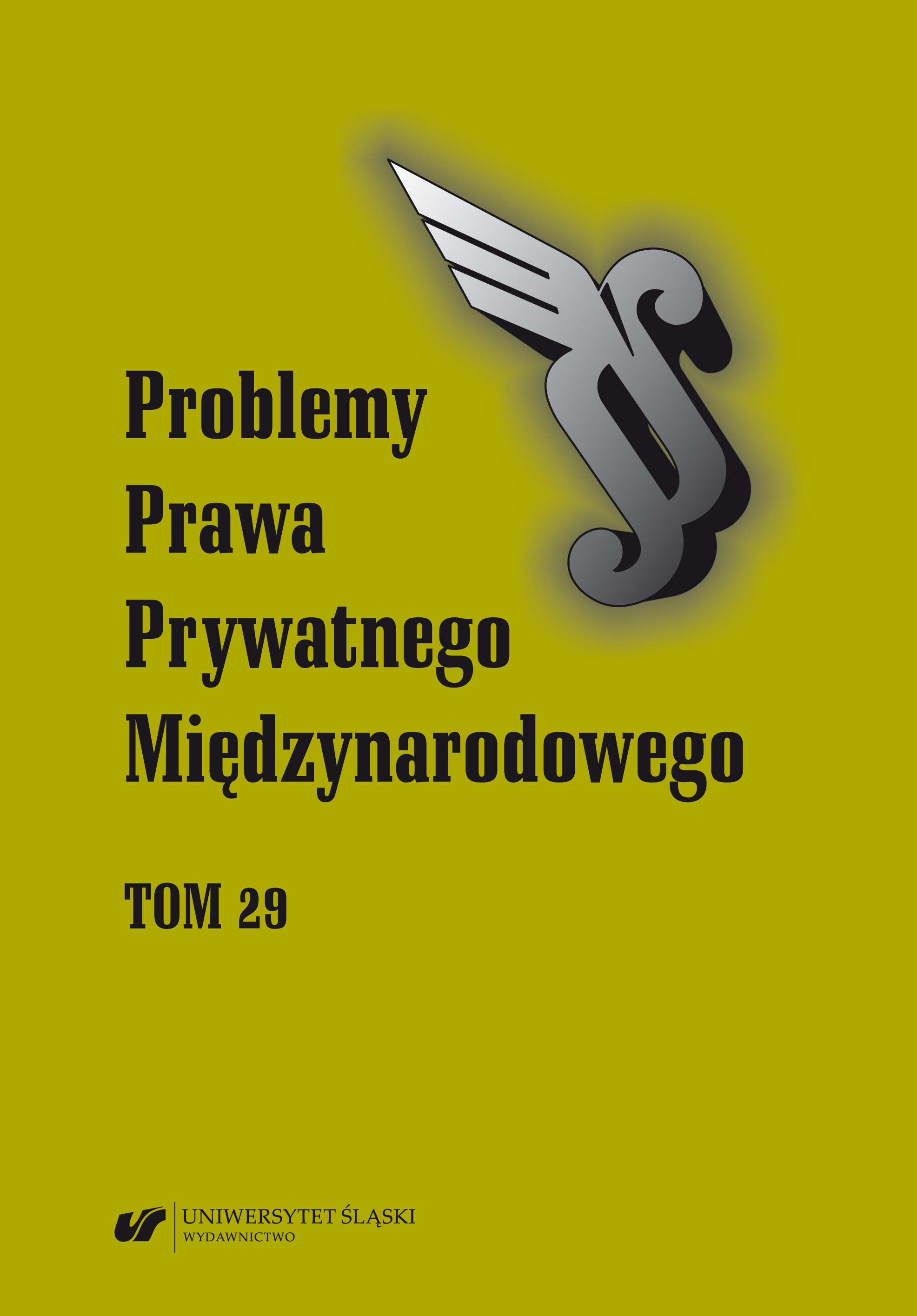Swobodny przepływ dokumentów w Unii Europejskiej: znaczenie i oddziaływanie rozporządzenia 2016/1191
Free circulation of the documents in the European
Union: the significance and impact of the Regulation 2016/1191
Author(s): Maciej ZachariasiewiczSubject(s): Law, Constitution, Jurisprudence
Published by: Wydawnictwo Uniwersytetu Śląskiego
Keywords: free circulation of documents; public documents in EU; regulation 2016/1191; recognition of civil status in EU; Hague Apostille Convention
Summary/Abstract: The article is dedicated to the (still relatively unknown) EU Regulation 2016/1191. The Regulation disposes of some of the formalities with respect to circulation of the public documents within the EU. In particular, no legalization in any form, including the apostille under the Hague Convention, is needed with respect to documents covered by the Regulation. Unliked originally planned by the Commission, the Regulation does not, unfortunately, completes a more challenging goal of mandating recognition of the civil status throughout the Union. This issue still remains subject to national conflict-of-law rules. Moreover, the scope of the Regulation is relatively narrow. It does not, again regrettably, apply to many public documents which are crucial in crossborder transactions (excerpts from commercial registers, powers of attorney for sale of immovable property).The author analyses to what extent Regulation 2016/1191 offers progress in circulation of documents. This question is first raised in light of the long standing application of the Hague Apostille Convention. The author then attempts to discern the effective role of the Regulation, given the fact that under Article 1138 of the Polish Code of Civil Procedure, no legalization in any form is in principle required for the foreign public documents to be treated as authentic and official proof in Poland (although the practice often is to ask for the apostille even if not required by law). Still, the Regulation 2016/1191 might come of assistance for the parties in some respects. First, it will facilitate acceptance of Polish public documents in those Member States, which have so far required apostille. Second, the Regulation may help to overcome an incorrect practice in Poland of requiring apostille by the officials, where Article 1138 actually dispenses of such formality. Third, the Regulation introduces an administrative cooperation based on the IMI system which allows to verify doubts as to the authenticity of the public document from another Member States. This last feature of the Regulation, it is argued, may prove of its true value to the freedom of circulation of public documents within the EU.
Journal: Problemy Prawa Prywatnego Międzynarodowego
- Issue Year: 2021
- Issue No: 29
- Page Range: 91-123
- Page Count: 33
- Language: Polish

